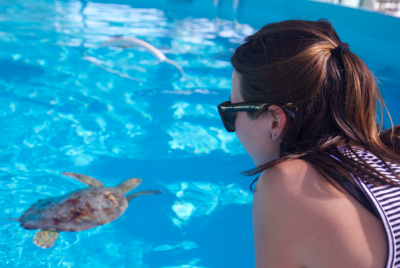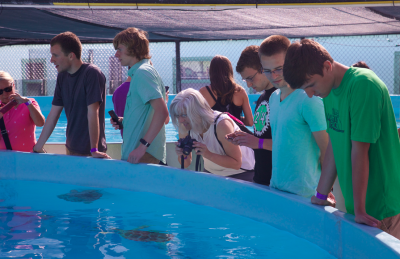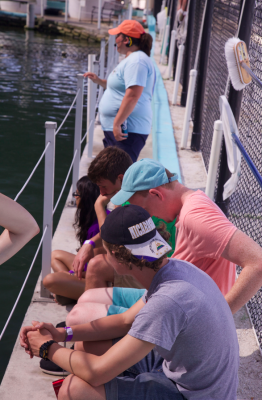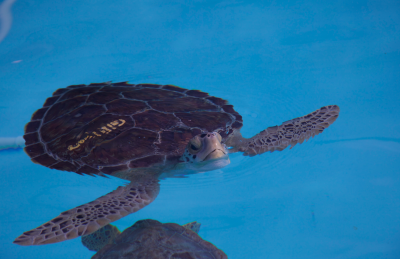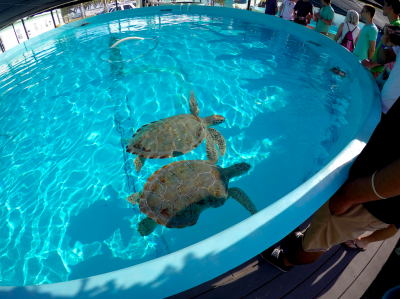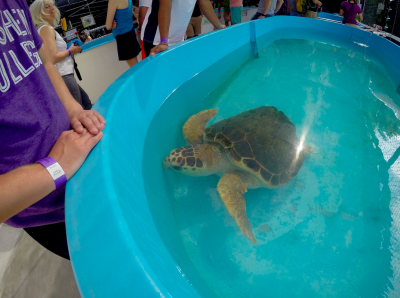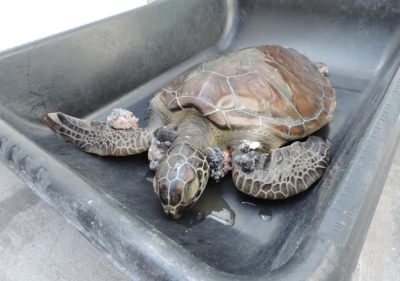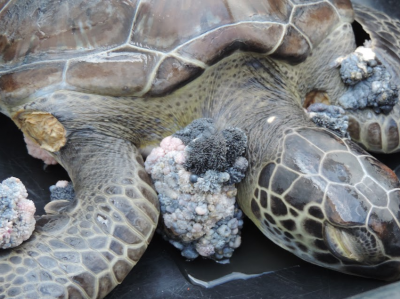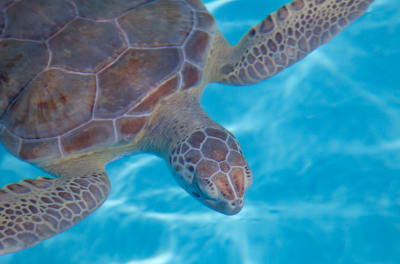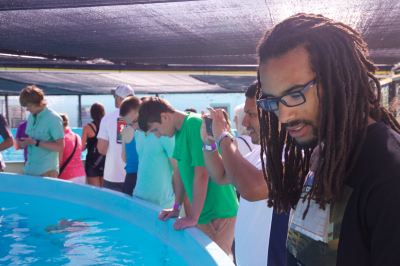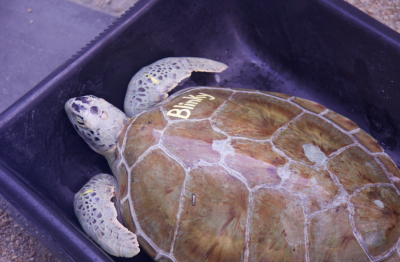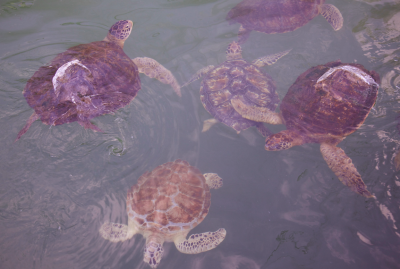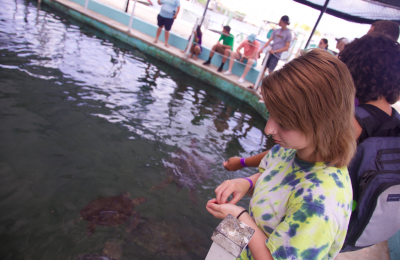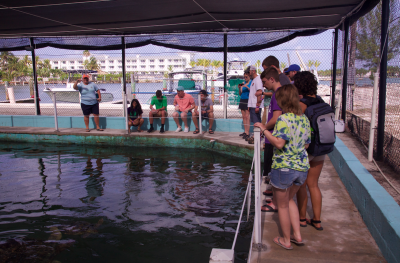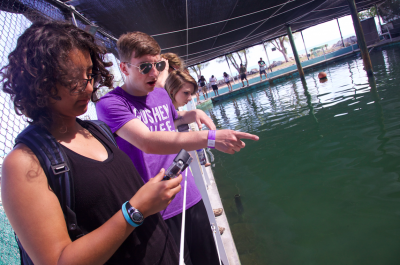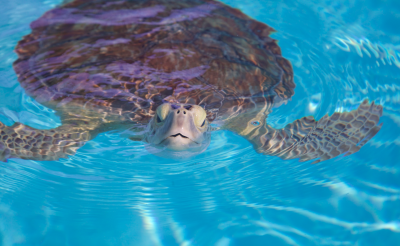May 2nd
Today, we visited the Turtle Hospital –a non-profit organization focused on the rehabilitation of endangered sea turtles– in Marathon Key. This turtle hospital was the very first of its kind in the world. We learned of the many threats to sea turtles and the different types of turtles that can be found throughout the Florida Keys: the green sea turtle, Leatherback, Loggerhead, Hawksbill, and Kemp’s Ridley. Each species has a unique diet and varies greatly in size –the Leatherback sea turtle being the largest. The biggest Leatherback ever observed was nearly ten feet in length and weighed over 2,000 pounds. That is just massive!
Two common ailments that can land a turtle in the hospital are a build-up of gas in the digestive tract and the growth of tumors. Trash that has accumulated in the ocean is frequently eaten by sea turtles, causing the build-up of gas and/or digestion problems. Because of the gas buildup, the turtle floats on the surface of the water and can not dive for food. This problem can also occur if a turtle is hit by a boat, wherein the recovering turtle develops “bubble butt” -the accumulation of air in the rear end of a turtle. Most sea turtles with this condition are permanent residents of the hospital.
Fibropapillomatosis (FP) is a herpes-like virus that can infect sea turtles. When human generated pollution enters the water, it can compromise a turtle’s immune system and increase the likelihood of the animal contracting the FP virus. This virus causes the growth of tumors. Though the tumors are benign, they can greatly decrease vision and mobility of the turtle, reducing the turtle’s chances of survival.
As Reena mentioned yesterday, today was the day for presenting our research proposals! The six research groups presented on a diverse range of topics –it will be interesting to see how they all pan out. The process of thinking through possible research topics was intriguing because countless variables come into play in the complex marine system. Tomorrow we have our first research visit where we will put our methods to the test and begin collecting data.
http://www.turtlehospital.org/
Bryan Nguyen ‘18





